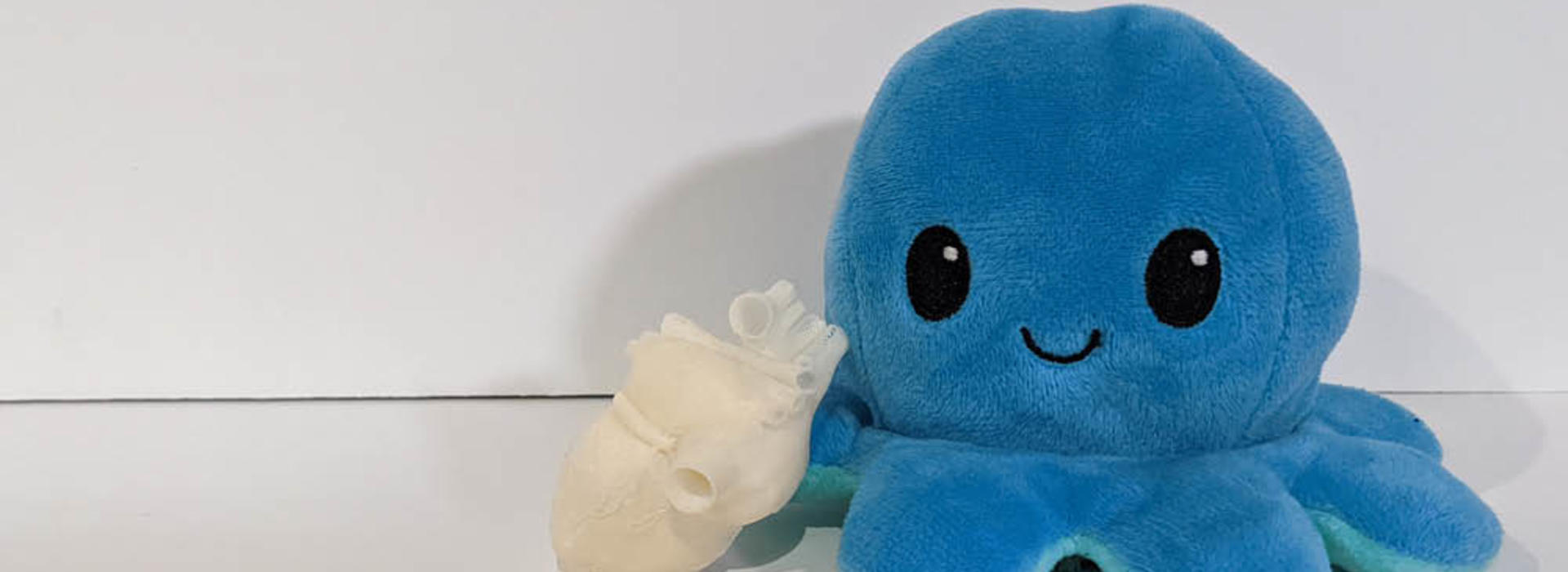
How a Toy Octopus Can Educate on Congenital Heart Disease
Gurumurthy Hiremath, MD, assistant professor in the Department of Pediatrics, and Amr El-Bokl, pediatric cardiology fellow, both at the University of Minnesota Medical School, recently worked alongside Carlye Lauff, PhD, assistant professor of product design and undergraduate student Levi Skelton in the College of Design to create an innovative product to help educate children on congenital heart disease (CHD) with efforts to ease parental stress.
A recent article from the College of Design explains the purpose of the project and the importance of educating children in a new light.
CHD is a physical heart defect that begins in the womb, impacting around 40,000 children born in the U.S. each year. Due to the several different ways CHD can manifest, it can be difficult for children and their parents to understand and manage.
“There is a tendency to try and protect children from information,” Dr. El-Bokl explained. “... Slow and early introduction is one of the best ways to become familiar with the medical information, but we don’t have many child-friendly tools to facilitate this”
To help create a simple and effective education tool, Dr. El-Bokl and Skelton began on the design process journey.
Skelton, who had no previous experience working with medical professionals or any previous knowledge on CHD, spoke on his experiences getting started with the project. “I had done some previous interdisciplinary work, but this was different because Dr. El-Bokl was both my client and mentor. While he was teaching me about CHD, he was also telling me what he wanted out of the product.”
Once Skelton had a concrete understanding of CHD and after performing additional research, including volunteering at a residential summer camp for children with heart disease and speaking with a child life specialist, he came to the conclusion that using an animal companion toy would be most beneficial. Skelton said, “Once I decided on creating a toy, I researched animals with unique hearts and chose the octopus because it has three of them!”
The plush octopus, named Octo, is designed with a removable, 3D-printed heart and includes a digital app for children to administer checkups and learn more about different cardiovascular functions.
Upon reflecting on the final prototype and potential of the toy, Skelton is hopeful for the possibilities that can come from collaborations between the College of Design and the Medical School.